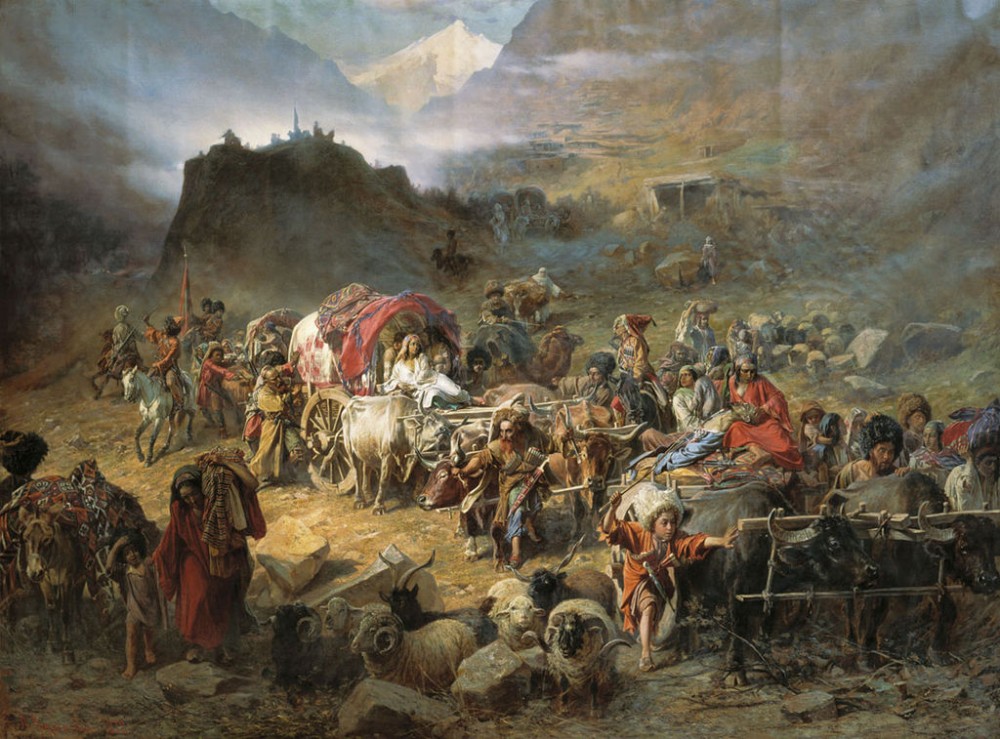Today, Circassians and their supporters mark the 153rd anniversary of the day Russian forces expelled Circassian nation from their homeland in 1864; but the Russian genocide directed against the Circassians did not begin on that day or end then. Instead, it began in the middle of the 18th century and lasted until the 20th, according to Merab Chukhua.
Chukhua, a professor at Tbilisi State University, the head of the Circassian Cultural Center there, and one of the authors of Georgia’s recognition of the Circassian expulsion as an act of genocide, argues that Russia’s act of genocide against the Circassians lasted far longer than that.
That lengthy act of violence against the Circassians was carefully studied by Georgian and other experts, he continues, and it is one of the reasons why the Georgian parliament became the first and so far the only national government in the world to recognize that what the Russian state had done to the Circassians was a genocide.
Like the Armenians, the Circassians are dispersed around the world; but in contrast to them, Moscow actively opposes international recognition of its crimes against the Circassians as an act of genocide, Chukhua says. Instead, it has submerged the Circassians into the general category of Rossiyane.
But that ignores the fact that “the Circassians … were forcibly exiled from Circassian lands, from their own motherland” and that “Russia does not recognize this or give them the status of compatriots.” Instead, Moscow insists that it will take in only those Circassians whose ancestors Russia brutally expelled who somehow have learned Russian.
“’Figures’ like Putin come and go, and Russia too will be changed,” Chukhua says. “I think that in Russia the strength will be found to say ‘no’ [to Putin’s approach to the Circassians] and to put an end to all the sufferings of the Circassian people. Russia has no other possible variant.”
If Russia doesn’t, he says, “Russia will remain a country without the Caucasus, including without the Circassians.” It must recognize the genocide of the Circassian people, and that should not be hard because it was the tsarist authorities and not the present-day Russian ones who carried it out.”
“It is a well-known fact that when a criminal acknowledges his guilt, it makes things easier for him. That would be the case for Russia today” if only it could take that step.
Related:
- Russians won’t admit expulsion of Circassians was genocide — but Ukrainians should
- Moscow seeks to block Circassians in Russian capital from marking genocide anniversary
- Under Putin, Circassians and Crimean Tatars at greatest risk of repression – and for same reasons
- The Unsung Lament: Russian Atrocities in Caucasus
- Stalin’s Caucasus crimes Putin wants you to forget

